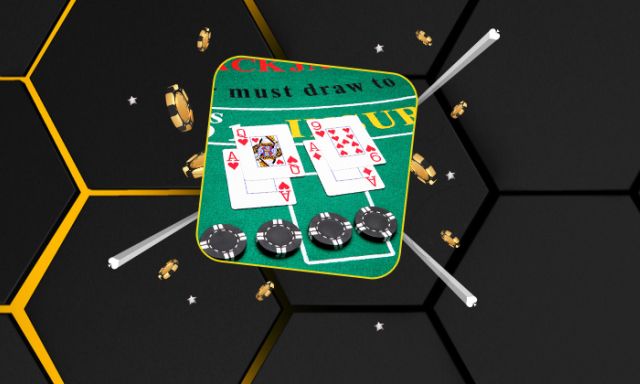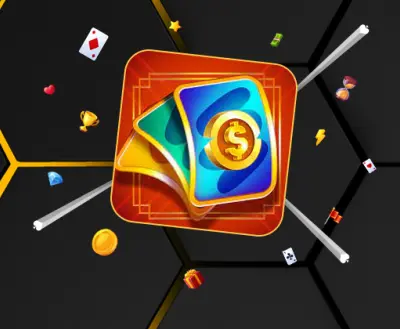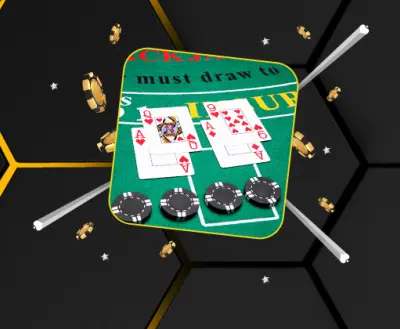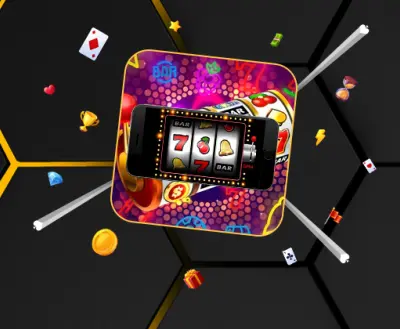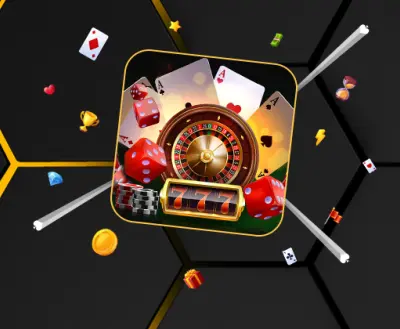Double Down In Blackjack: Meaning, Strategy And Tips
Double Down In Blackjack: Meaning, Strategy And Tips
Anyone that has played Blackjack online will likely have seen the option to 'double down' at least once. As the name suggests, it allows the player to double their stake, which may sound like an attractive offer when the dealer is showing a weak card. In this article, bwin explores everything surrounding this bet, including what it is, the advantages, and potential drawbacks!
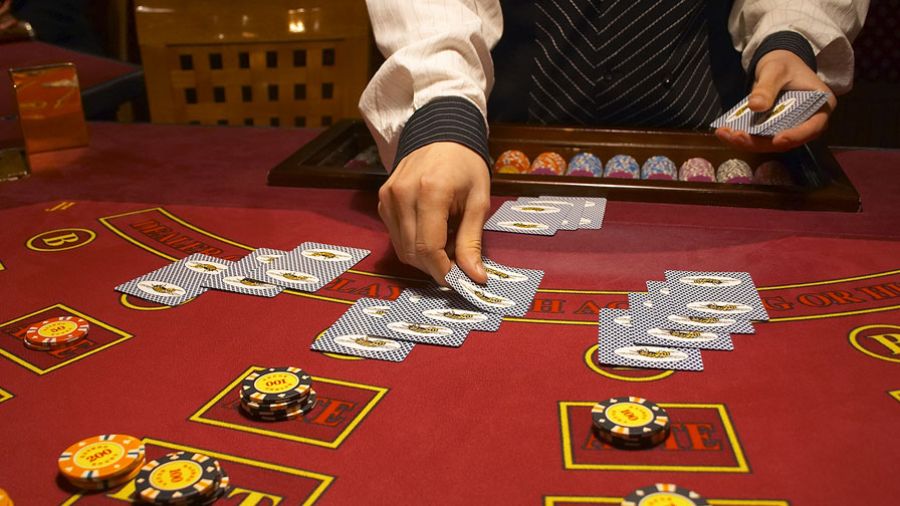
Understanding The Double Down Meaning In Blackjack
The double down meaning involves players multiplying their current stake size by 2 before one additional card is dealt. After that, the value of the hand will be locked in for the rest of the round. Of course, if the bet is successful, both the initial and additional bets will be awarded at the rate of 1:1, or 2x. Many people opt to double down on 11 consistently. However, there are other times in which the players will consider this option.
It's important to remember that doubling down can only be done when 2 cards have been dealt. There is one exception to this, which is after a split. Most tables will not allow players to double down after a split. However, there are a few tables that will. This is a prime example of why understanding the rules of a specific table is key before playing. If this is indeed permitted, a single hand can be doubled down or both.
How Doubling Down In Blackjack Works: Rules And Strategies
While doubling down certainly comes with some advantages, it isn't always an available option. Let's take a look at the rules associated with this extra bet, alongside some strategies that might be useful for players!
Blackjack Double Down Rules
As previously mentioned, doubling down can only be done after the first two cards have been drawn. Players cannot opt to hit and then double their hand at a later stage. If a player has doubled down their hand, it will instantly stand, meaning that the hand can no longer be improved. In addition to this, players will often not be allowed to double down if they opted to take insurance against a dealer's ace.
Some variations of Blackjack will not allow players to double down on any hand, either. Although this is relatively uncommon, there are some tables that state players can only double down when their starting hand totals 10 or 11, for example.
Blackjack Double Down Strategies
Doubling down should be done with great caution and can only be favourable in certain positions. Players can use a system to optimise their chances, with blackjack basic strategy being the most popular. In essence, basic strategy focuses on the likelihood of each outcome, telling players which action will offer them the best chance of a successful hand.
This can be found on a chart, showing all possible hands of both the player and the dealer. Where the two hands meet will signify the recommended action for the round. On most basic strategy charts, double down will be represented by a single 'D'. Following this chart does not guarantee a win, but it can help players to improve their chances in a time-effective way.
Another strategy that some players implement is to always double down on 11. This is incredibly simple, however, also follows basic strategy for the most part. According to the chart, players should always double an 11, unless the dealer is showing an ace. The reason for this is rather straightforward, as the deck contains more 10s than any other card. As a result, the chance of the player ending the round on 21 is improved if their first two cards equal 11.
Pros And Cons Of Doubling Down In Blackjack
The obvious advantage of doubling down in Blackjack is the opportunity of doubling the potential winnings for the hand. It also allows players to place a bet after additional information has been revealed, allowing them to assess their current position. At the start of the round, players have no idea about the cards that will be dealt. However, knowing their 2 cards and the dealer's face up card can significantly help the decision-making process.
On the other hand, players can lose their stake size and double down bet, should the dealer have a number closer to 21. Even if a strategy is followed, a win is never guaranteed. This can be made even worse if the player has a strong hand, yet it's still beaten. When it comes to playing Blackjack, few things are more frustrating!
Blackjack Double Down: Tips And Tricks
In some instances, doubling down is the move recommended by many. There are also some hands that players should avoid doubling. The outcome of the hand still relies on luck, but by being smart with each action, players can increase their chances of success.
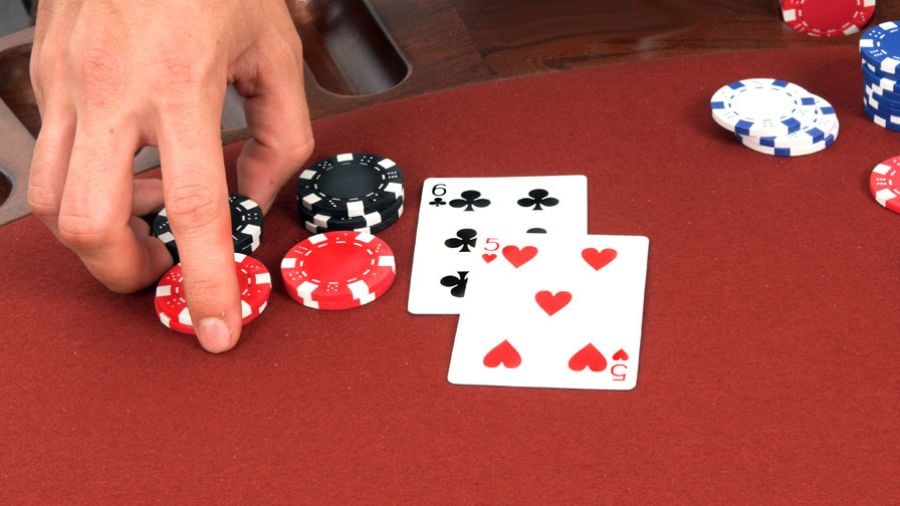
When To Double Down?
The most obvious time to double down blackjack hands is when the player has an 11. This is the recommended move almost all of the time, with the only exception being if the dealer is showing an ace. Players can also double down on a 9 or 10, should the dealer have an unfavourable card, such as a 5 or 6.
Doubling down on a soft 16, 17, or 18 can also be considered. A soft hand is when one of the cards is an ace. For example, a soft 16 would consist of an ace and a 5. Players may opt to double down on such a hand, as the probability of improving the hand with an additional card is relatively high.
When Not To Double Down?
One of the most common times to avoid doubling down is against a dealer's ace. Should they have a blackjack, the initial and additional stake will both be lost. As there are significantly more 10s in the deck than other cards, the chances are heavily in their favour to make a blackjack.
Players should also think twice before doubling down if their hand has a value of 12 or more. The thinking behind this is rather simple, as busting the hand will forfeit both bets. Doubling down should also be avoided on bad blackjack hands, according to basic strategy. This can include hands with a total of 5, 6, and 7, to name just a few.
How To Double Down In Blackjack Online And Offline?
The method of doubling down will depend on whether the player is sitting at an online or physical blackjack table. Here are the two different ways of doing so:
Blackjack Online
At an online casino, doubling down is incredibly easy. Players can simply wait for their turn to act before the option is shown on screen. The button will appear next to the regular 'hit' or 'stand' actions if doubling down is available.
Blackjack Offline
Should punters be playing in a land-based casino, they must push their additional wager next to the initial one. This stack of chips must be equal to the original bet. One of the benefits of playing over a real table is the ability to interact with the dealer. If there is any confusion, players can tell the dealer verbally that they wish to double down.
Frequently Asked Questions About Double Down In Blackjack
Should I Always Double Down On 11?
According to basic strategy, players should always double down blackjack hands that equal 11. There is one exception to this, which is when the dealer has an ace.
Do You Double Down On 11 Against A 10?
Yes, basic strategy says that players should double an 11 versus a dealer's 10. Basic strategy offers the optimal way to play based on mathematics. With that being said, keep in mind that it doesn't always guarantee a win.
What does Double Down mean in Blackjack? (
Doubling down is when a player doubles their initial bet size after receiving 2 cards from the dealer. This option comes with advantages but can also be incredibly risky.
What Is The Payout For Double Down In Blackjack?
Should a player double down, both their initial stake and the additional bet can be awarded at the rate of 1:1. For example, if a player bets 1.00, doubles down, and wins, they will be awarded with a total of 4.00.
When Should You Double Down In Blackjack?
Doubling an 11 is a popular choice in Blackjack. It can also be considered when the player has a soft 16, 17, or 18. Should the dealer have a weak hand, such as a 6, sometimes basic strategy indicates that the player should opt to double down, too.

